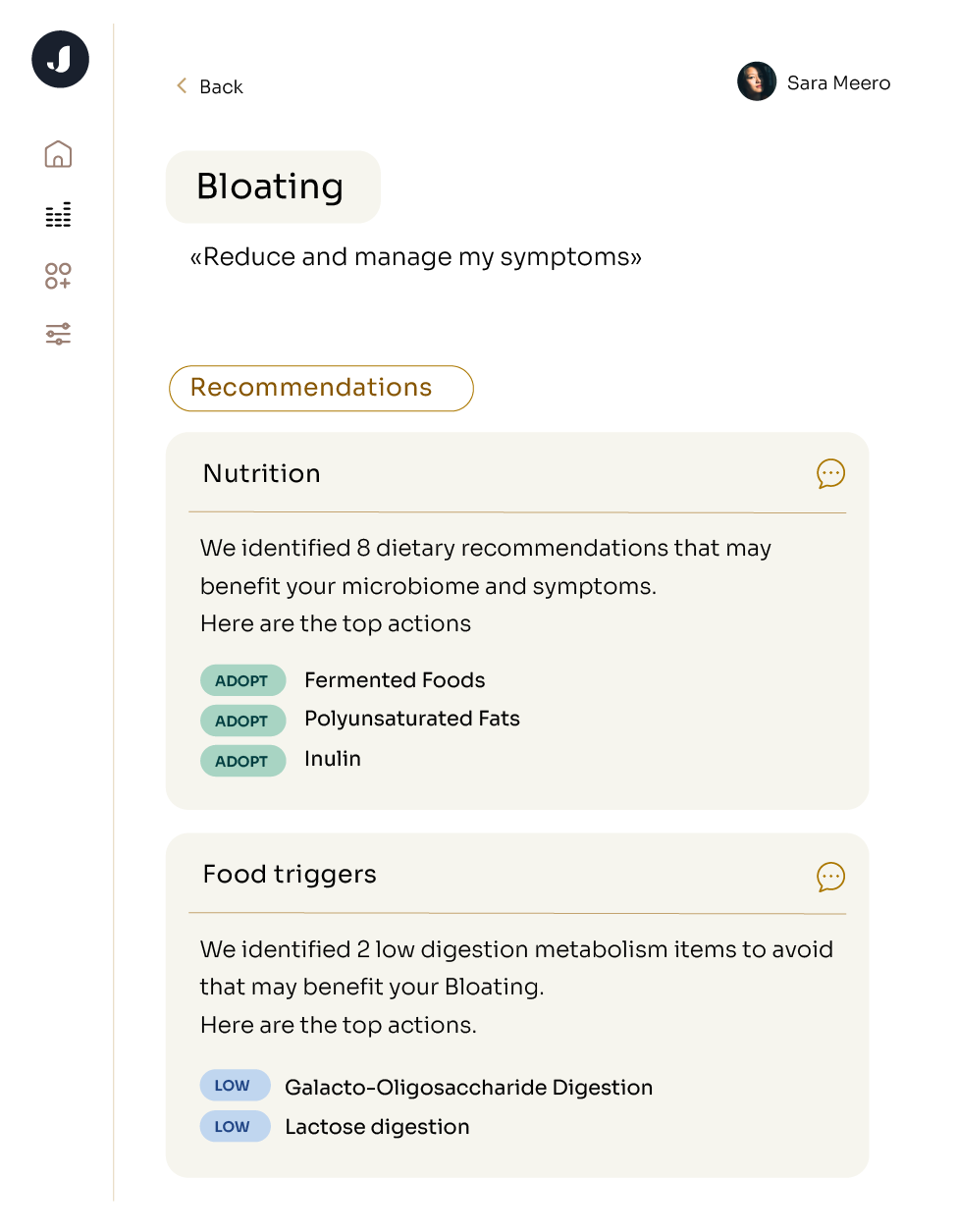You may be familiar with irritable bowel syndrome, or IBS, a disorder that affects between 25 and 45 million people in the United States. Two in every three people with IBS are female, which makes this a significant women’s health issue. But how does this common condition develop? Can it be prevented? Can you cure it? In this Jona Journal, we’ll shed light on these common IBS concerns.
What Are the Symptoms of IBS?
The hallmark symptoms of IBS are abdominal pain and altered bowel habits. These altered bowel habits may take the form of constipation or diarrhea, or alternating periods of both. Based on your mix of symptoms, your doctor may specify your IBS as IBS-C (constipation-predominant), IBS-D (diarrhea predominant), or IBS-M (mixed).
What Causes IBS?
IBS is considered a neurogastrointestinal disorder, meaning it affects the link between your brain and your digestive system. This link helps explain why individuals with IBS often find that mental or emotional stress worsens their GI symptoms. Conversely, talk therapy and meditation may help to ease IBS flares.
There is no single cause of IBS, as it is caused by a complex combination of genetics and environmental factors. Contributing factors may include:
Other conditions are likely to co-occur with IBS, such as:
What Age Does IBS Typically Appear?
IBS is commonly diagnosed before age 50, but the condition affects people of all ages (including children and the elderly).
Risk factors that may contribute to IBS
You are more likely to have IBS if you:
Are female.
There are more than 2x the number of females with IBS than males with IBS. The exact reason behind this is not clear, though researchers have identified that sex hormones affect the regulation of several factors thought to be implicated in IBS, including the gut-brain axis, stress response, visceral sensitivity, and the gut microbiome.
Are under the age of 50.
IBS can occur at any age, but up to 50% of people with IBS report symptoms beginning before the age of 35. IBS is less likely to develop past the age of 50. Similar to other risk factors, the reason for this is unclear, though some have hypothesized that it might have to do with hormonal fluctuations in younger people, dietary and lifestyle habits, and increases in major stressors and life events.
Have a family member with IBS.
We will dive into the role of genetics in IBS next, but the familial trend in IBS may also be related to share environmental factors, such as diets and stressors, share similar gut microbiota profiles, early life factors, and awareness of the disorder.
Is IBS Genetic?
The short answer is: it’s complicated. While IBS has been shown to aggregate in families and affect multiple generations, it does not follow the straightforward dominant or recessive inheritance patterns described by Mendelian inheritance and there is no direct ‘IBS’ gene. So, while a genetic component of IBS exists, it is passed down differently than traits like hair or eye color. Heritability estimates of IBS (which measure genetic contribution to a trait) range between 0 and 57% in medical research. This means that the genetic contribution to IBS varies, from no genetic influence at all to genes being responsible for as much as 57% of the risk. This wide range suggests that, along with genes, other factors like diet, stress, and lifestyle also play significant roles in whether a person might develop IBS.
Is IBS Preventable?
Probably not, as a combination of genetics and complex environmental factors play a role in the development of the disease. Maintaining your overall health via regular exercise, a balanced diet, and enough sleep offers the best chance of limiting the environmental risks of IBS. If you do have IBS, you can manage your symptoms by avoiding trigger foods, tracking your microbiome health, and working with your doctor to treat persistent symptoms.
How to Diagnose IBS
There is no definitive test for IBS. Your gastroenterologist or primary care physician may start with a physical examination and a history of your symptoms. After that, they may recommend a few tests, such as a stool test, blood test, or a hydrogen breath test, to rule out conditions like celiac disease or small intestinal bacterial overgrowth (SIBO).
Beyond these tests, your doctor may use the Rome IV criteria, a set of clinical guidelines used to help diagnose IBS. The Rome IV criteria for IBS are
“Recurrent abdominal pain on average at least 1 day/week in the last 3 months, associated with two or more of the following criteria:
Related to defecation
Associated with a change in frequency of stool
Associated with a change in form (appearance) of stool”
By “change in form of stool”, doctors mean a change on the Bristol stool scale below. Types 3, 4, and 5 are all healthy. Regularly experiencing other stool types may indicate a digestive issue.

(image courtesy of Health.com)
How Jona Supports IBS and Its Symptoms
At Jona, we understand that managing IBS and its symptoms in your day-to-day life can be painful and frustrating. We have analyzed hundreds of research papers on the relationship between irritable bowel syndrome and the microbiome, and we believe microbiome health could support symptom management.
How does Jona’s technology help?
For everyone who takes a Jona test, we create an identical, virtual version of your microbiome which can be analyzed by our AI Interpreter. The interpreter compares your virtual microbiome against all studied microbiomes in scientific literature, including many individuals with irritable bowel syndrome. We assess how similar or different your microbiome is with these known profiles and determine whether yours is associated with individuals who have certain conditions or who experience certain symptoms. This informs the Associations on your Jona report.
If Jona finds an association between your microbiome and irritable bowel syndrome or symptoms associated with irritable bowel syndrome, our AI will also look for Actionable Steps you can take to improve your microbiome health and reduce these associations. Our AI Interpreter can run simulations of different actions you could take (such as, increasing Resistant Starch) and determine which ones will benefit your microbiome profile the most.
When to Contact a Doctor
Taking a Jona test can empower you to take control of your health through understanding and improving your microbiome health, but the microbiome is just one important piece of your overall health. This does not replace medical care from licensed healthcare providers.
If you experience the symptoms we described above or have experienced a significant and persistent change in your bowel habits, it might be a sign that you have a medical condition. Consult your primary care physician or health care provider to further evaluate your symptoms. Red flag symptoms to look out for that may indicate a more serious condition are unexpected weight loss, rectal bleeding, unexplained vomiting, and pain that isn’t relieved by passing gas or having a bowel movement. Contact your doctor if you are experiencing any of these red flag symptoms.






